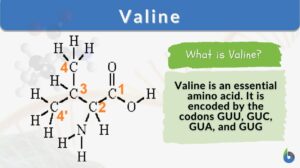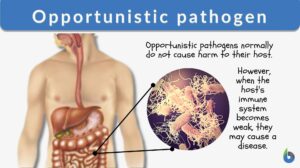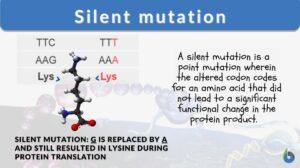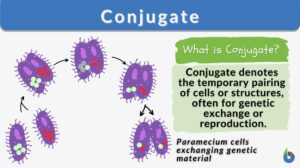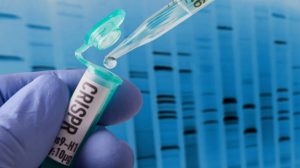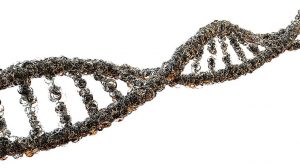Search Results for: resistance
Environmental resistance
Environmental Resistance Definition Environmental resistance is such a process in which certain different elements or... Read More
Hypertrophy
Hypertrophy Definition Hypertrophy refers to the enlargement or increase in the size of an organ or tissue due to the... Read More
Resistance factor
Definition noun, plural: resistance factors The earlier term used to refer to the plasmid that confers certain bacteria the... Read More
Resistance
resistance The failure of a condition to respond or remit following treatment. (medicine) the condition in which an organism... Read More
Autocrine signaling
Autocrine Signaling Definition What is autocrine signaling? Autocrine signaling is a type of cell signaling wherein a cell... Read More
The consequences of antibiotic use in horticulture
Leading articlesFrederick R. Falkiner* Department of Clinical Microbiology, Trinity College, Dublin; Central Pathology... Read More
Circulation
Blood Blood is composed of a liquid, plasma, and blood cells such as erythrocytes (red blood cells,) leukocytes (white... Read More
Physiological adaptation
If we look over evolutionary history, we find that it’s neither the most genius and intelligent nor the strongest and the... Read More
Biotic potential
When we look at the different forms of life, we often wonder how they have continued to exist one generation after another.... Read More
Opportunistic pathogen
Opportunistic Pathogen Definition How do we define opportunistic pathogen? The opportunistic pathogen is an infectious... Read More
Neural Control Mechanisms
Nerve cells called neurons generate electric signals that pass from one end of the cell to another and release chemical... Read More
Silent mutation
A mutation is a change in the nucleotide sequence of a gene or a chromosome. When there is only one nucleotide involved, it... Read More
Susceptible
Resistance, vulnerability, sensitivity, tolerance, and susceptibility are some highly important terminologies across the... Read More
Adipose tissue
Adipose Tissue Definition Adipose tissue, a specialized variety of connective tissue, is composed of lipid-rich cells known... Read More
Respiration
Organization of the Respiratory System Each lung is composed of air sacs called alveoli - the sites of gas exchange with... Read More
Recalcitrant
Several words of the English language find wide usage in subjects as diverse as literature, science, social science,... Read More
Community (biology)
Community, in biology, refers to the assemblage of interacting organisms (either of the same or different species)... Read More
Antagonistic Muscle
Definition of Antagonistic Muscle What does the term “antagonistic” mean? As the name suggests, the word antagonistic... Read More
Acinetobacter lwoffii
Definition Noun A gram-negative aerobic and non-fermentative bacterium involved as a normal flora of the skin, perineum and... Read More
Antibiotic
Definition noun, plural: antibiotics Antimicrobial agent made from microorganisms, and can kill and inhibit the growth of... Read More
Enterobacter aerogenes
Definition Noun A gram-negative rod shaped motile and encapsulated bacterium and have peritrichous flagella that surrounds... Read More
Muscular system
Muscular System Definition What is the muscular system? The muscular system is a system that includes muscle cells and... Read More
Eubacteria
Eubacteria are prokaryotic microorganisms consisting of a single cell lacking a nucleus and containing DNA is a single... Read More
Conjugation
Conjugation generally means the joining or coming together (union), such as in certain unicellular organisms (some bacteria,... Read More
Lotic Communities & Animals
A running water environment offers numerous microhabitats that simulate favorable conditions for many types of animals to... Read More
Tight junction
What are tight junctions? Tight junctions are the intercellular barrier between two neighboring endothelial and epithelial... Read More
CRISPR DIY – biohacking genes at home
Have you ever thought of changing yourself for the better -- genetically-speaking? Lately, CRISPR company has been selling a... Read More
Osseous tissue
What Is Bone Or Osseous Tissue? Osseous tissue is the structure providing, hard and mineralized connective tissues. Osseous... Read More
Genetic Mutations
Reviewed by: Mary Anne Clark, Ph.D.Genetic Mutations Genetic mutations are inherited variations in an... Read More
Multiple alleles
Alleles are the pairs of genes occupying a specific spot called locus on a chromosome. Typically, there are only two alleles... Read More
Transposon
Definition noun, plural: transposons A small segment of DNA that is capable of replicating and inserting copies of DNA at... Read More




